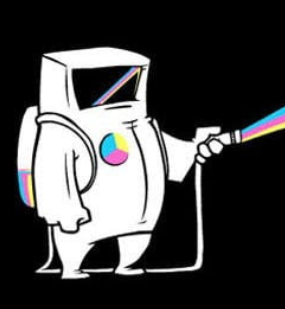I think it would be interesting to share lessons we’ve learned about socializing that didn’t come natural to us like they do for NTs.
-
What social difficulties did you have, and what did you learn to compensate for them?
-
Also, since there’s a difference between autistic and NT cultures, what lessons did you learn about socializing with NTs and in NT environments?
Infodumps are welcomed! 😁


https://www.goodreads.com/book/show/3828370-political-savvy
https://en.m.wikipedia.org/wiki/How_to_Win_Friends_and_Influence_People
Star trek
It was a rocky road, but I got there in the end
Could you elaborate on the lessons you have learned from those resources pls?
Looking at people and their intrinsic motivations desires and goals as a basis for conversations
How to do this pls? One of my autistic traits is that I can’t read people’s intentions.
Lots of practice.
For me it works like an elaborate pattern recognition tree.
e.g. This face in this context means x thing 75% of the time so far.
Then it’s “strong opinions held weakly”, you now have a working hypothesis but it’s just that, a hypothesis.
Every facial/body/word/etc change could be a modifier to the previous assumption. You could also match some newly remembered memory to the situation that also changes the impression of what is going on.
It’s exhausting, but it becomes easier with practice.
It’s gets more refined the more you are around the same people, as you get a ‘feel’ for their patterns.
You also start to build up a library of ‘shortcuts’ that you can sometimes apply to unfamiliar situations/people.
At some point it starts to become ‘muscle memory’ and the energy required to do it is greatly reduced.
YMMV however, I’ve no idea if this will work for anyone else in the way I have described.
I’d also say to remember that everyone is guessing to some degree or another it’s just that your guesses might require a bit more intention, whichever method (s) you settle on.
You do what you can with what you have, that is the best that can be reasonably expected of anyone.
This is similar to how I function with reading people now. I have to build a profile of every person in my head. When I first meet them, I know the elementary ones like smiling, nothing, and crying. If it looks like I’m going to be around this person for a while, I start noting what their faces look like when they’re feeling a certain way. If it’s someone I will need to trust, I will ask them a question they will lie to to see what they look like when they are lying.
This is very interesting. Have you considered studying social engineering? - I’ve found SE techniques quite understandable to help form a process to deal with people in a ‘useful’ way. Many years ago I was sent on a positive influencing course via work and discovered that most NTs can be quite easily manipulated with a few simple tricks. In the end I stopped using them as it felt unfair.
I know of it but I’ve not put any effort in to specific practice.
My personal opinion is that most communication between anyone contains manipulation, even if they aren’t doing it consciously, it’s an intrinsic part of how we deal with each other.
The difference is that i don’t have much of a natural instinct for it, i have to practice and be much more intentional, which brings benefits and drawbacks.
I find that a lot of people in general can be manipulated in similar ways (I’m no exception to this) but techniques vary by culture, upbringing, experience, context etc, i don’t like to do it , however, for the reason stated a bit further down.
Identifying which markers work for which people is a a lot of the battle initially.
Unfair is relative and heavily context dependent but in some circumstances yeah it can feel a bit like a cheat, what I’ve found over time is that I’d be cheating myself just as much as anyone else, my goal in general was/is better communication and understanding, if I’m intentionally manipulating outside the norms then the interaction is tainted in terms of learning natural communications patterns.
If they are intentionally manipulating outside of the norms then that’s significantly more interesting and useful for gaining samples from uncommon behaviours.
I recommend reading political savvy